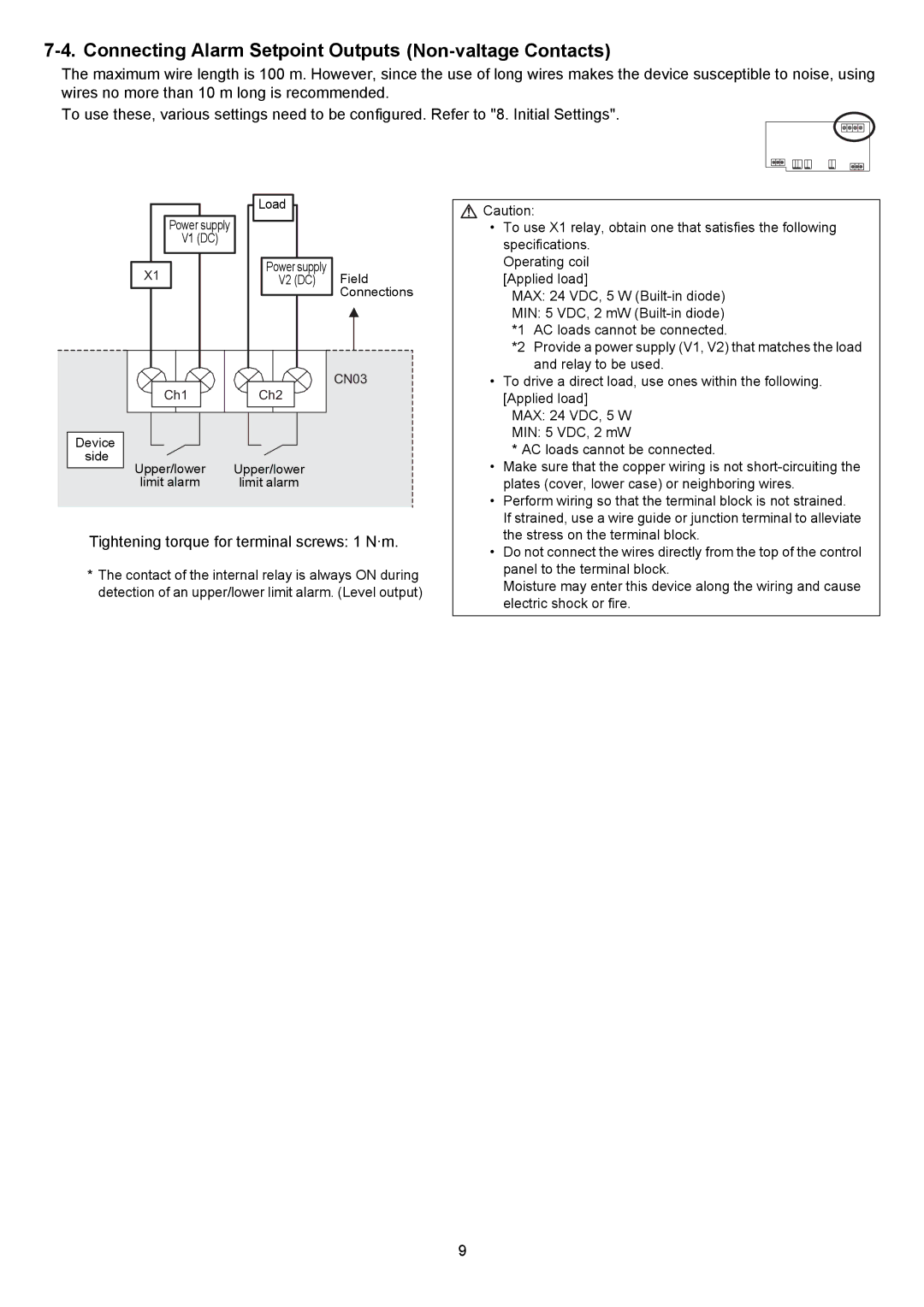
7-4. Connecting Alarm Setpoint Outputs (Non-valtage Contacts)
The maximum wire length is 100 m. However, since the use of long wires makes the device susceptible to noise, using wires no more than 10 m long is recommended.
To use these, various settings need to be configured. Refer to "8. Initial Settings".
| Load |
|
| Power supply |
|
| V1 (DC) |
|
X1 | Power supply | Field |
V2 (DC) | ||
|
| Connections |
CN03
Ch1 | Ch2 |
Device |
|
side | Upper/lower |
Upper/lower | |
limit alarm | limit alarm |
Tightening torque for terminal screws: 1 N·m.
*The contact of the internal relay is always ON during detection of an upper/lower limit alarm. (Level output)
![]() Caution:
Caution:
•To use X1 relay, obtain one that satisfies the following specifications.
Operating coil [Applied load]
MAX: 24 VDC, 5 W
MIN: 5 VDC, 2 mW
*1 AC loads cannot be connected.
*2 Provide a power supply (V1, V2) that matches the load and relay to be used.
•To drive a direct load, use ones within the following. [Applied load]
MAX: 24 VDC, 5 W
MIN: 5 VDC, 2 mW
*AC loads cannot be connected.
•Make sure that the copper wiring is not
•Perform wiring so that the terminal block is not strained. If strained, use a wire guide or junction terminal to alleviate the stress on the terminal block.
•Do not connect the wires directly from the top of the control panel to the terminal block.
Moisture may enter this device along the wiring and cause electric shock or fire.
9
